Ireland referendum: What happens inside an abortion clinic
- Published
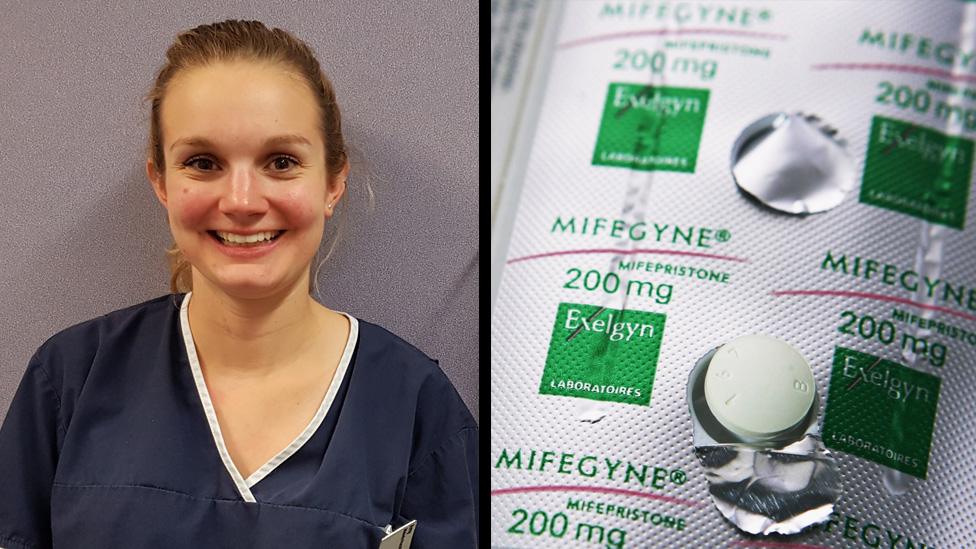
Midwife Amy Harris
Amy Harris meets hundreds of women a year who are considering ending their pregnancies.
The 27-year-old midwife works at a clinic in London run by the British Pregnancy Advisory Service, which provides mainly NHS-funded abortions.
As the Republic of Ireland prepares to vote on legalising abortion, Amy tells us what the procedure involves - and busts some myths.
"We don't want it to feel intimidating, or like a hospital. People are sometimes a bit scared when they come in," she tells Radio 1 Newsbeat.
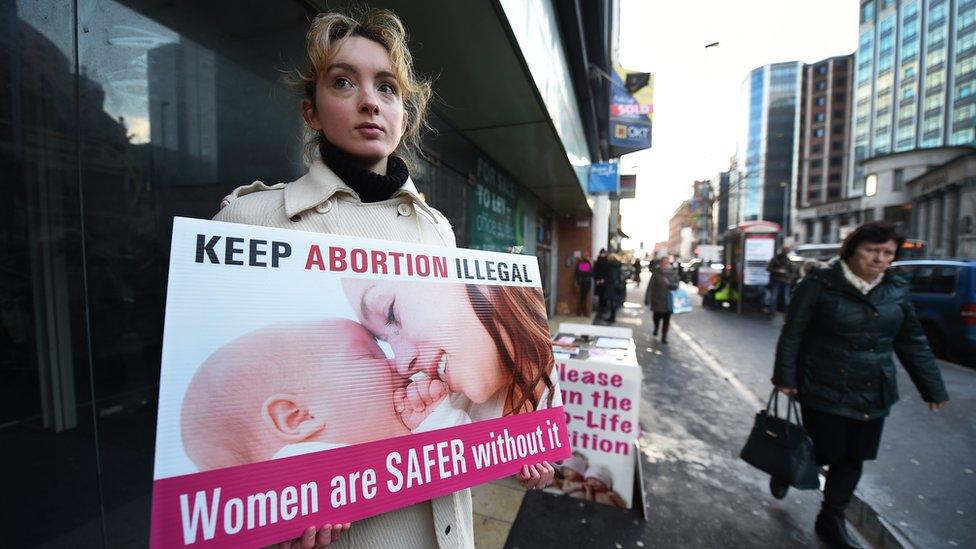
Anti-abortion campaigners often picket outside abortion clinics
Consultation
Before an abortion, people need to have a consultation. They can be referred by their GP, or they can self-refer.
"People come in feeling a whole range of emotions," says Amy.
"Some people are very sure of their decision - they've read all about it and they know what to expect.
"Then you get people who are unsure of their decision."

Pro-choice murals have appeared across the Republic of Ireland ahead of the referendum on May 25
Counselling
BPAS clinics are among those across England, Wales and Scotland where people can have an abortion funded by the NHS.
"Every client that comes in sees one of our nurses who are trained in counselling before they go ahead with any treatment. They'll offer information on their options," says Amy.
Those options are: abortion, becoming a parent, or adoption.
Amy describes the counselling as "impartial", claiming that there is "no incentive" to persuading people to have abortions.
Rather, it's about helping women to work out what is best for them, she says.
"We're a pregnancy advisory service. We provide abortions, but we also refer onto antenatal care.
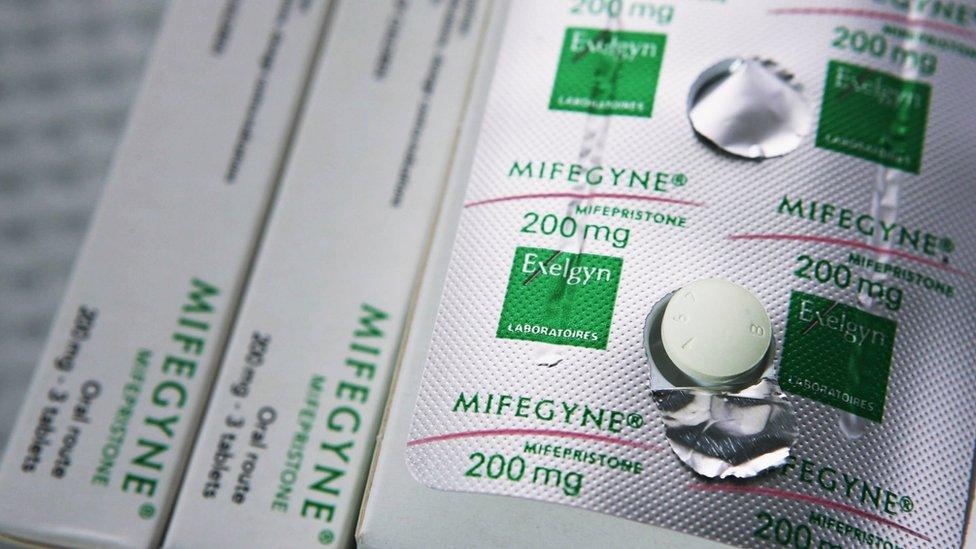
Pills used to perform medical abortions
Types Of Abortion
There are two types of termination, medical and surgical - both of which can be carried out up to 24 weeks of pregnancy in England, Wales and Scotland.
"Often it comes down to the woman's preference," says Amy.
Medical abortion involves taking two types of tablet, given to block the pregnancy hormone and encourage the womb to contract to pass the pregnancy.
The first tablet is called mifepristone, and the second, misoprostol, is normally taken 24 to 48 hours later.
In England and Wales, the tablets have to be taken at a hospital or clinic, but in Scotland women can take misoprotol at home.
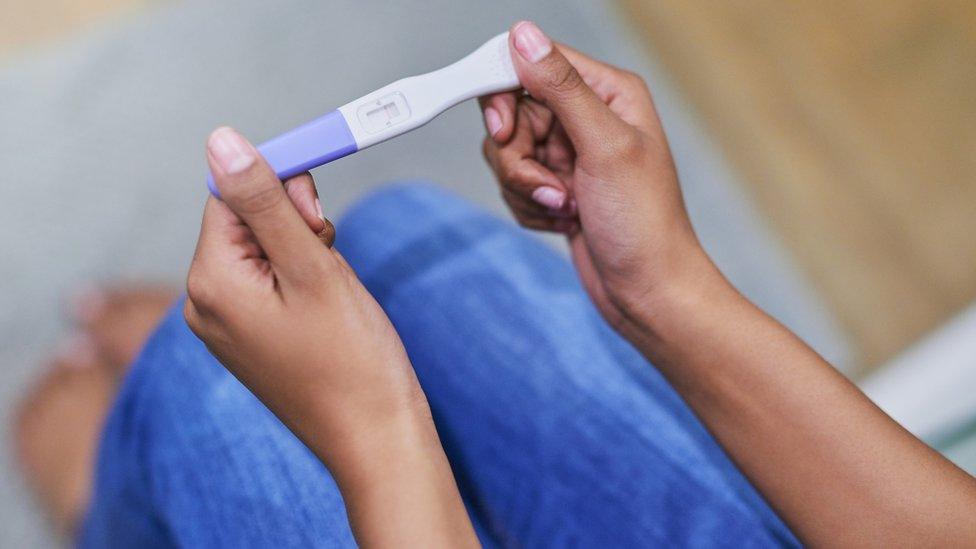
After four to six hours, the lining of the womb breaks down, causing bleeding and loss of the pregnancy.
"It's similar to a miscarriage in terms of the bleeding and pain," says Amy.
Many people go home during this time, to make themselves feel more comfortable.
"After that we can expect them to have one to two weeks of bleeding. It's the body recovering."
Surgical abortion can be done in two ways.
In a vacuum aspiration abortion a tube is gently inserted into the womb through the cervix, and the contents of the womb are sucked out through this tube.
The second option involves enlarging the woman's cervical canal with tools called dilators. The womb content is then sucked or scraped away.
Surgical abortion takes around five to 20 minutes, depending on gestation [how long the woman has been pregnant], and is performed under anaesthetic.
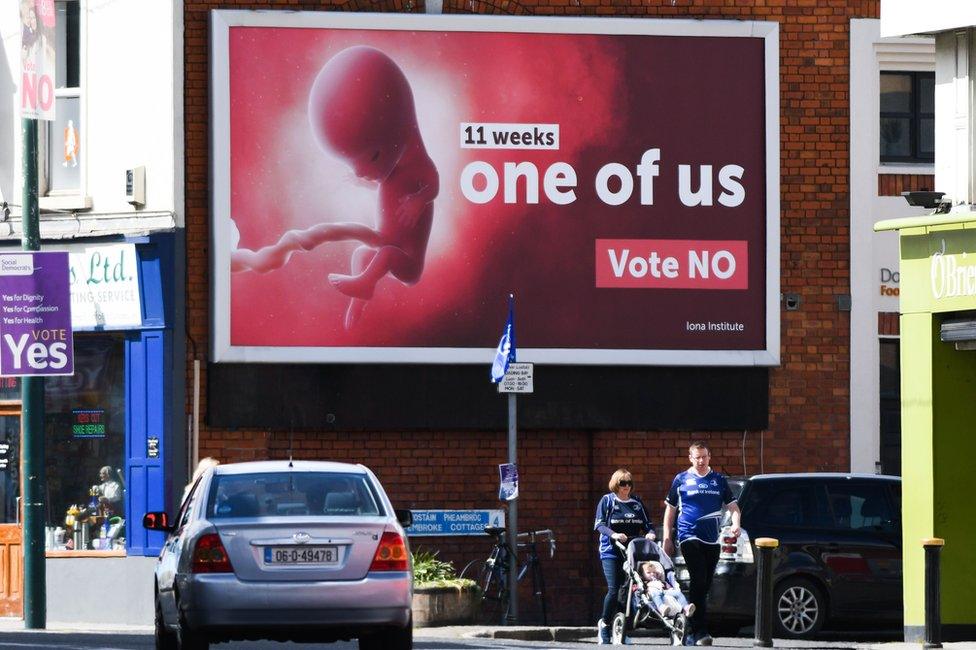
A billboard urging a No vote in the referendum
Getting Support
"If people want to bring their partner, friend or family along, we absolutely encourage that," says Amy. "Some want them heavily involved."
But the initial consultation will always just be done with the woman alone, to make sure she's happy with her decision.
Amy says after an abortion it's important that women have someone supportive around them.
"Just have somebody nearby that you can call on if you feel unwell. In terms of emotional support, give the person space to talk.
"People feel a range of emotions afterwards. It's complex."
Many clinics also offer counselling after abortions.
"People sometimes call years after they've had an abortion," says Amy.
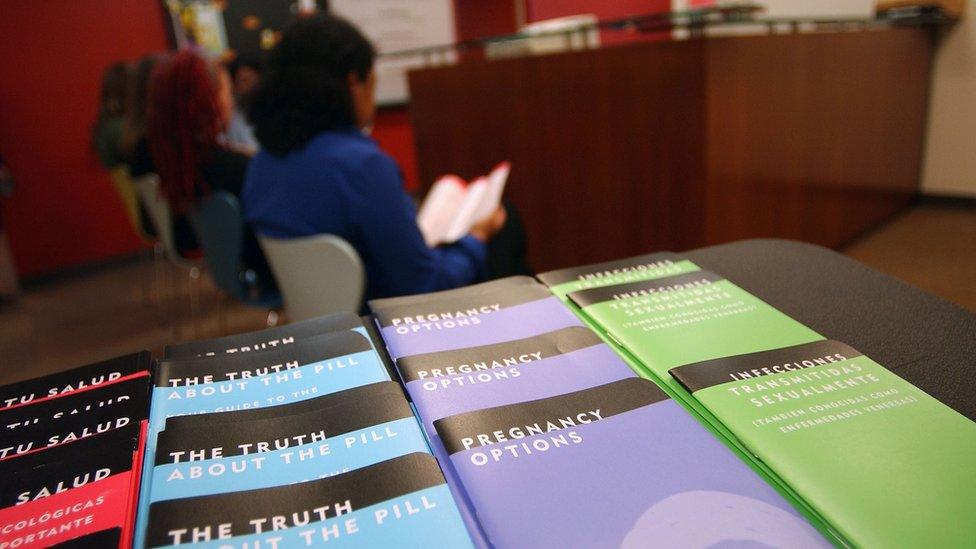
Potential Risks
Most women won't experience any problems after an abortion.
But there are some risks - such as infection of the womb, damage to the womb and excessive bleeding.
"We give everyone painkillers and an aftercare phone line so they can call us 24 hours a day if they notice anything unusual," says Amy.
There's no evidence that an uncomplicated abortion will affect a woman's fertility.
Myth Busting
You might have heard rumours about abortion, such as "people use it as a form of contraception".
Amy says that's untrue.
"Over half of the women we saw last year were using at least one form of contraception when they conceived," Amy says.
"A quarter were using a long-acting reversible contraceptive such as the IUD [which is 99% effective in preventing pregnancy when properly inserted].
"These are people who have tried to make sure they don't get pregnant.
"I wouldn't suggest that abortion is an easy process to go through - nor a decision that people come to lightly."
Another myth is that abortion causes depression.
"There's no evidence to suggest that link," says Amy.
Although depression can be triggered by specific traumatic events, there is generally no single cause, and Amy says most of the women she treats do not regret their decision.
"We offer support to everybody after an abortion, but people don't generally require counselling.
"For many people, an abortion is something they've considered and will think about afterwards, but that won't negatively impact them mentally or physically."
Anti-abortion campaigners argue there is an alternative to legalising abortion which is better funding and support for pregnant women.
Read why one woman is campaigning to save the Eighth Amendment.
Visit the BBC Advice Pages for help with contraception and dealing with pregnancy.
Follow Newsbeat on Instagram, external, Facebook, external and Twitter, external.
Listen to Newsbeat live at 12:45 and 17:45 every weekday on BBC Radio 1 and 1Xtra - if you miss us you can listen back here.
- Published10 May 2018

- Published6 February 2017

- Published8 March 2018
